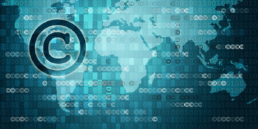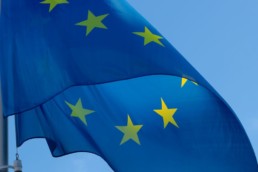Will the Implementation of the EU Copyright Directive Be Delayed?
We live in unprecedented times. The COVID-19 pandemic has affected governments worldwide, including the member states of the European Union, as they shift their focus from day-to-day legislation to battling the outbreak. According to several news sources, including a recent Politico article, transpositions of the new EU Copyright Directive of which Article 17 is a part will be slowed. For example, France has partially adopted the new Directive but the implementation of Article 17 will now not happen in France until the third or fourth quarter of 2020.
As Andrus Ansip, the former European Commission vice president for digital commented about the transposition of the Directive in a recent Politico article, "It will take some time for the directive to be implemented in all member states. Because of the coronavirus crisis, I think not so many people are thinking about copyright". The crisis has also impacted the stakeholder dialogues, which will help define guidelines for implementation of the Directive across the EU. The seventh meeting was scheduled for March 30th but was postponed by the European Commission due to the crisis.
Several Countries are Close to Adoption in 2020
Although we cannot predict the future timing of each country, this interruption will only be temporary.
- It is likely that France and Italy, and possibly also the Netherlands and Denmark, will have completed the transposition before the end of 2020, with the remaining countries due to do so before the June 7, 2021 deadline.
- Some member states have reportedly requested the European Commission to suspend enforcement proceedings against member states who are currently in default of their obligations to transpose other, earlier Directives. The Commission does not appear to have responded to these requests but is unlikely to start enforcement proceedings against any member state while the current situation lasts.
- The situation in Italy should be closely monitored. The Italian government intends to transpose the Directive by Decree before the end of the year. In recent cases, Italian courts ruled that even before the Directive comes into force, platforms are directly liable for making available content uploaded by users and have awarded substantial damages. Transposition of the Directive in Italy will give platforms the benefit of a new safe harbor if they comply with the requirements of Article 17(4).
It is highly likely that the Copyright Directive will already be law in several European countries before the end of 2020.
The June 2021 Deadline Still Applies
This delay does not change the June 2021 deadline for EU states to adopt the Directive into law. This is fixed in the law, although it is possible that the European Commission may be flexible when it comes to enforcing this deadline.
Plan Now
It is important to start planning now on how to meet the requirements and understand the impact of the Directive on your business.
Below are some resources to help you understand the Directive and how it may impact your business.
- Take our A17 Assessment Survey for platforms to assess if the Directive affects your company and then assess your readiness to comply
- Learn more about the impact of the EU Copyright Directive on live streaming platforms
- Understand how small social networks will be impacted
- Read the full text of the Directive
- And more is available on our Article 17 page as well as in our blog section
Audible Magic Review: An Article on Live Streaming and the New European Copyright Directive
Whether you agree with the new European Copyright Directive or not, an objective of the Directive was to ‘clarify’ the definition and obligations of online content sharing service providers (“OCSSP”). One area which remains unclear, however, is the application of the Directive to ‘live streaming’ platforms – which in these times are becoming an increasingly significant category of media.
A new article by one of Europe’s leading copyright law experts, Dr. Eleonora Rosatii, examines live streaming services in the context of existing EU copyright law and the new 2019 EU Directive on Copyright.
Conclusion: Live Streaming Platforms Classified as OCSSPs
Dr. Rosati’s analysis concludes that live streaming platforms fall within the definition of an ‘online content sharing service provider’ under the new 2019 EU Directive on Copyright in the Digital Single Market (The Copyright Directive). These platforms can, therefore, be held directly liable for copyright infringement by making infringing streams, initiated by their users, available to the public.
In this respect, the Copyright Directive does not materially alter their position as it stood under EU law prior to the Directive being passed. What is different, is Article 17 provides live streaming platforms protection from liability, if they make best efforts to get licenses and take measures according to high industry standards to ensure the non-availability of infringing content via their platform.
Summary of Analysis
Given the huge spike in live streams of DJ sets during the COVID-19 pandemic, this timely article looks at live-streamed performances and notes that, if the performance had taken place in a public venue, the venue would have been required to obtain copyright licenses.
Dr. Rosati examines the situation of a hypothetical Platform X: DJs upload live streams of their performances which include the playing of copyright sound recordings. Platform X stores the material only for so long as necessary to enable the uploads to be transcoded and then streamed to an audience of frustrated would-be club-goers. Storage is therefore ephemeral, and no copies of the DJ sets are stored for future on-demand streams or downloads. The live streams are indexed by the platform, enabling would-be listeners to search and find streams or DJs they like.
The author explores the platform’s direct liability under the principles of existing EU law for making user-generated content available to the public. These principles were developed in successive cases decided by The Court of Justice of the European Union, culminating in the express finding of direct liability in the 2017 decision in Ziggo (the Pirate Bay case)(C-610/15). The precise nature and scope of this liability remains uncertain as evidenced by the number of CJEU referrals currently pending in this area (YouTube, C-682/18; Elsevier (C-683/18); Stichting Brein (C-442/19); and Puls 4 TV (C-500/19)).
Dr. Rosati says that it is not surprising that the Copyright Directive is characterized (in Recital 64) as a ‘clarification’ of existing law. She points out that where Article 17 goes beyond the pre-2019 EU copyright regime, it is not in the direct liability of OCSSPs for acts of communication or making available to the public, but in the regime that it establishes around that potential liability.
The article also examines whether a live streaming service can be considered an Online Content-Sharing Service Provider (OCSSP). Article 2(6) of The Copyright Directive defines an OCSSP as an online service, one of whose main purposes is “to store and give the public access” to large amounts of copyright content which it “organizes and promotes for profit-making purposes.” The issue is whether the ephemeral nature of the storage disqualifies the live streaming platform from being classified as an OCSSP. Rosati examines this question in-depth in the context of the Copyright Directive and the E-Commerce Directive and concludes:
“Live streaming providers that behave like Streaming Platform X in the example above are to be regarded as OCSSPs, even if the storage made of user-uploaded content is limited in time. What is relevant for the qualification of a provider as an OCSSP in principle is the purpose that it pursues (to store and give the public access to a large amount of protected subject matter uploaded by users) and, with that, the role that it performs (organization and promotion of such subject matter for profit-making purposes), not the duration (e.g., permanent or temporary storage of protected content) of the activity at hand.”
Dr Rosati concludes that the activities of the live streaming platforms are therefore governed by Article 17(4) of the Copyright Directive, and because of that, OCSSPs can protect themselves from liability, if they make efforts to obtain licenses for the content, and in the absence of any license, use best efforts, according to high industry standards, to prevent the availability of unlicensed content contained in the live streams. In conclusion, if live streaming platforms are classified as OCSSPs, the new Copyright Directive provides them a new ‘safe-harbour’ from liability provided they meet their other Article 17 obligations.
Commentary: Platforms Benefit from Safe Harbour as 2019 Copyright Directive OCSSP
The relevance of this article to live streaming platforms is clear and the implications are significant. Any live streaming service that gives public access to large amounts of copyright content uploaded by users, which it organizes and promotes for profit-making purposes, can be held directly liable for copyright infringement. This applies to both pre- and post- 2019 EU Copyright Directive regimes.
Prior to the Directive, even if a live streaming platform tried to get licenses and employed content recognition technologies to prevent unlicensed uploads, the platform would be liable for any infringing content that managed to get uploaded to its platform.
The new Copyright Directive changes that: The platform can now protect itself from direct liability by taking the steps prescribed in Article 17(4). These include using best efforts, according to high industry standards, to ensure the non-availability of content, in respect of which the copyright owner has provided relevant and necessary information.
_______________________________________________________________________________________________
[i] Associate Professor in Intellectual Property (IP) Law at Stockholm University; Guest Professor at CEIPI-Université de Strasbourg; Research Associate and Lecturer at EDHEC Business School; Associate at the Centre for Intellectual Property and Information Law at the University of Cambridge; Of Counsel at Bird & Bird; and Editor of the Journal of Intellectual Property Law & Practice (Oxford University Press, peer-reviewed). Dr. Rosati holds law degrees from the University of Florence, an LLM from the University of Cambridge, and PhD from the European University Institute.
Audible Magic Corporation Review is issued for informational purposes only and is not intended to be construed or used as general legal advice. Please contact the author(s) or your Audible Magic Corporation contact if you have questions regarding the currency of this information.
For more than 20 years, Audible Magic has innovated solutions to identify content, manage rights, and monetize media. Audible Magic’s Emmy-winning automatic content recognition (ACR) technology powers billions of transactions monthly. The Silicon Valley pioneer is the trusted intermediary among rights holders (including labels, studios, distributors, publishers, and collectives) and major platforms.
Audible Magic is a service mark and trade name of Audible Magic Corporation ©2020 Audible Magic Corporation. All rights reserved.
Plan Now
It is important to start planning now on how to meet the requirements and understand the impact of the Directive on your business.
Below are some resources to help you understand the Directive and how it may impact your business.
- Take our A17 Assessment Survey for platforms to assess if the Directive affects your company and then assess your readiness to comply
- Understand how small social networks will be impacted
- Read the full text of the Directive
- And more is available on our Article 17 page as well as in our blog section
Am I Impacted by Article 17 of the EU Copyright Directive?
If your mobile app or website allows sharing of user-uploaded content, then the answer is probably yes. Two keys things to understand regarding your business and Article 17:
- Although written in Europe for European Union member states, Article 17 can impact any mobile app or website that can be accessed by people living in the European Union.
- To understand the impact of the initiative on your business you need to understand how Article 17 categorizes your business.
OCSSP Definition
The directive creates a new acronym, an OCSSP, which is an “online content-sharing service provider”. Here’s what the text of the directive defines as an OCSSP:
“A provider of an information society service of which the main or one of the main purposes is to store and give the public access to a large amount of copyright-protected works or other protected subject-matter uploaded by its users, which it organizes and promotes for profit-making purposes.”
From this, there are at least five key criteria:
- If your service allows users to upload content
- Your service gives the public access to that content
- The content includes a “large” amount of copyright-protected works
- Your service is for profit-making purposes
- You organize and promote the content in some way (e.g. make it searchable, serve content up to certain users)
Exclusions
The directive does include some exclusions to the definition of the service provider definition above:
- Not-for-profit entities which include online encyclopedias (for example Wikipedia)
- Educational and scientific repositories
- Open-source software sharing platforms
- Electronic communication service providers
- Online marketplaces
- B2B cloud services
- Cloud services for user’s own use.
There are some specific exceptions for new and small companies, which limit how Article 17 applies to their service but does not alleviate legal obligations to address unauthorized copyright content. Check back for our next installment covering how smaller OCSSPs need to meet the requirements of Article 17.
Disclaimer: The information we provide should not be considered legal advice. While we work to be sure our information is accurate and useful; we recommend you consult an attorney.
Plan Now
It is important to start planning now on how to meet the requirements and understand the impact of the Directive on your business.
Below are some resources to help you understand the Directive and how it may impact your business.
- Take our A17 Assessment Survey for platforms to assess if the Directive affects your company and then assess your readiness to comply
- Learn more about the impact of the EU Copyright Directive on live streaming platforms
- Understand how small social networks will be impacted
- Read the full text of the Directive
- And more is available on our Article 17 page as well as in our blog section



